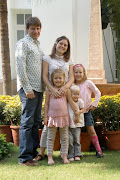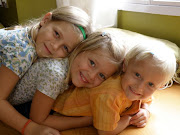My mouth and heart smiled in unison during the brief moment of peace on the long drive home. In that moment when the attack of traffic had lightened I happily noticed two things as I drove through the countryside on our way back to Delhi. First, I looked out of the window to my right and enjoyed the familiar splendor of another setting sun, a tender reminder of the beauty we had experienced on our weekend away. Then I looked down through the bottom of my steering wheel and saw something less familiar, a naked steering column and a black ignition box dangling by several wires. It was into this mess that I had plunged a screwdriver to start the car a few hours earlier at the beginning of our journey. This was a reminder of the special surprises we had encountered on our short trip.
We had spent the last three days at a pristine spot on the Ganga River above Rishikesh where the Himalayan River Runners have their base camp. We came here again this year because we enjoyed the place so much last year.
Year after year, this outdoor expeditions company claims this section of beautiful beach on a calm bend of this world famous river to set up 37 large canvas tents for campers. And it’s our kind of camping – they set up everything and clean it up for you afterward. They also cook your meals and maintain the outhouses. Not to mention, they provide the best in outdoor activities including river rafting, kayaking, rappelling, and all sorts of beach games. It’s not cheap, but for us it is well worth the price, even though what we enjoy most about the place is simply the place itself, the setting. When you live in a city like Delhi you need to find spots like this to escape to every once in a while. The natural beauty is stunning and begins to rejuvenate your body and soul almost immediately after arriving. To look out of the front of your tent across the silver sand and into the gentle flow of the river is soothing. To carry on with your eyes up the steep rock cliffs on the other side into the thick jungle gives you the feeling of being sheltered by a strong hand.
Everything about our experience last year seems perfect in our memory, although if we think hard, yes, there were also glitches. But this year the unexpected seems to have taken on a more prominent role, not to detract necessarily from the pleasure of the experience but to add an element of surprise. Here in India, one might call it masala, or spice. Four such surprises perfected our long weekend away, and each qualifies as something out of the ordinary. As this is now our fifth year in India, certain things such as the random appearing of cows and monkeys on the beach – which was an almost daily happening on the weekend – just don’t count as spectacular anymore, although we still enjoy them. A genuine surprise has to get your heart spinning a little; it has to excite you in some way.
The first surprise came late on our first evening there. Our three daughters were asleep already and Amy and I were sitting out on the sand near the river’s edge, talking and slowing down in the dim light of a half moon. Suddenly, dark figures began to dart around on the sand before us a few meters away. Unable to identify them in the low light, we turned on a torch, or a flashlight, as we call it back in Canada. By then the mysterious shapes had scampered down the beach, but as I shined the narrow beam of light in their direction we caught glimpses of their lighted eyes, three pairs exactly. We stood to attention and strained our eyes, keeping track of them as best we could as they moved swiftly in and around the boulders on the beach. Our hearts were spinning. Then at once they came toward us and quickly passed us, speeding out of sight down the shore.
We think they were wild dogs, but we don’t know for sure. There are other two-eyed options that inhabit the jungles in these parts. In any case, we considered them intruders at our camp and we were unsettled by their presence. Still, we calmed ourselves and welcomed the night and, after checking on our three sleeping beauties in their tent close by, we prayed against interruptions and went to bed ourselves. In the morning, we thanked God for a peaceful night.
Our second surprise also had to do with unexpected visitors, but of a less-dangerous sort – well, depending on your politics. After river rafting during the afternoon of our second day, we returned to our tents at the far end of the beach to enjoy some privacy. Instead, we were greeted by a crowd of a dozen men sitting in front of our tents, three of which were conspicuously carrying machine guns. They acknowledged us in a friendly manner and continued their loitering. Our kids didn’t seem to mind so much and began playing in the sand amidst the men. We were, however, less than impressed and requested that the camp staff ask the crowd to move upstream. They obliged us immediately, but it was also explained to us that these men were security personnel for the US Ambassador to India who was fishing just off in the distance. Slightly charmed that such a high-profile guest would choose our front yard to fish in, we waited to see if he would be coming our way. Before too long, he was standing where our kids were playing, and had begun to interact with them casually. I decided to join the conversation and walked over from our vantage point up the beach. We chatted with Tim briefly and also met his two daughters. Nice people. Very easy to talk to. We were quite amused to hear such strong Virginian accents there on the banks of the holy Ganga, nestled in the Himalayan foothills. As a family, they are new to India, only two months into his first term as His Excellency, the Ambassador. He didn’t catch anything that night.
Our third surprise came on the third evening, again after the kids had gone to bed. With our flashlights in hand, Amy and I walked across the sand toward the large tents where the meals were served. But halfway there we met another crowd. They were an active bunch – laughing, hollering, jumping and dancing. But we quickly realized what the cause of the excitement was all about – a snake, a python to be exact. As we came closer, we could see Ashraf, the Camp Manager himself, clutching the snake’s head in one hand and cradling the snake’s slithering body in his other arm. It was a baby python, only a mere meter and a half long, but it was well worth all the attention. Everyone gathered around. Out came the cameras. People took turns touching the scared snake. All the while Ashraf kept a tight grip on the serpent’s head. Not that a python is venomous – they are constrictors – but their bite can still do damage. This is what Ashraf – a novice snake charmer – was telling us as the baby in his arms was trying hard to squeeze its captor’s strong hands. The baby, of course, was no threat, he told us, nothing compared to the four-meter python that he had found down the beach not too long ago with a dead monkey inside him. (Amy and I looked at each other and exchanged identical thoughts about our four-year old daughter who often reminded us of a monkey.) And then another story about another python, even longer, that some local villagers had found in the jungle with a full-grown deer in its belly. We were quickly losing our appetites and longing to check on the kids. And then a good question from one of the other campers, “What will you do with it now?” (It, being the snake.)
“Well, we will set it free, of course, in the jungle where it belongs,” said the snake-lover.
“Yes, of course,” we all agreed. “And which jungle in particular were you thinking?”
“Well,” Ashraf replied, “we couldn’t risk letting it go in the jungle downstream because surely in the next camp down the river they would kill it. So we’ll have to release it upstream.”
Our tents, of course, were upstream in the direction he was pointing. And in our minds we were weighing the snake’s safety and the safety of our kids. Perhaps I would have disposed of the reptile, if the decision had been mine.
Ashraf and an assistant walked upstream with their catch. As we stood in front of our tents, we hoped they would not return quickly but would take the snake a good distance up the river and deep enough into the jungle. As they returned only a few minutes later, Ashraf saw our worried faces and assured us that the snake was safe, and that it wouldn’t be back, and that snakes were actually afraid of people. He said it in much the same manner as I had assured Amy two days earlier that there were no snakes at all in this area.
Nevertheless, it was time again to sleep. We prayed and pulled our five beds closely together, mine nearest the door of the tent, and we slept again, and we slept well, and mostly uninterrupted.
In the morning, as we cleared out our tents and packed our bags, there was a sense of satisfaction in our hearts. Now it was time to say goodbye to the river, the beach, and the jungle, and to go home, back to the city. We had planned to leave shortly after breakfast to ensure that the entire drive home could be done in daylight. Driving these roads during the day is stressful enough; adding the element of darkness is more than I wanted to bear.
Our fourth and final surprise began to unfold as we walked across the beach with our luggage, heading for our car. After rifling through my pockets and coming up empty handed, I called out to Amy, “Do you have the keys?”
She gave me that look that commonly confronts my absentmindedness. But this time I was able to convince her quickly that she had been the last in possession of the keys. Together we started thinking and searching. We hadn’t driven the car since our arrival at the camp, but we had used the keys on a couple of occasions to retrieve things from the car. It wasn’t long before Amy recalled having the keys in our friend’s car when we had gone river rafting together two days earlier. But our friends were already back in Delhi, having had returned the previous day. A quick phone call confirmed our worst fear – the keys were still in their car, now in Delhi, at least an eight-hour drive away. Oh, no!
We discussed our options: we return to Delhi by taxi or train and I come back up the next day with the keys; we wait and get the keys couriered up to the camp; or we call a mechanic to hot-wire our car. Since the first two options were complicated by the fact that Amy’s parents were arriving from Canada into Delhi the next day, we decided promptly that the latter option was at least worth a try. Amy and the kids put their swimsuits back on and returned to the beach, while Ashraf made a call to a trusted mechanic. Fortunately, one of the back sliding windows of the car was slightly ajar, so we pulled it open and squeezed Alexis through the narrow gap. She unlocked the doors and the mechanic went to work on the ignition. Within three hours of the initial surprise, we were on the road with five surprisingly positive attitudes. It seemed to be limited stress for such a setback. Within another eight hours, we were safely back in Delhi. The next morning we all headed out to the airport to pick up Amy’s parents, though we were still starting the car with a screwdriver.
































No comments:
Post a Comment